Filter by
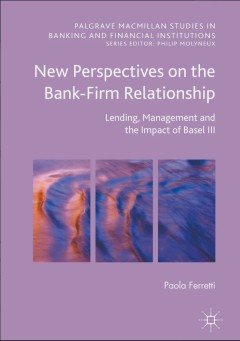
New Perspectives on the Bank-Firm Relationship Lending, Management and the I…
This book analyses the connections between the banking industry in Europe and the companies it finances. Ferretti specifically studies how these bonds have evolved over time and questions whether now is the time for a change in the relationship’s dynamics. Chapters discuss the role of bank lending in firms’ financing during the recent financial crisis, as well as issues in credit risk manag…
- Edition
- 1
- ISBN/ISSN
- 2523-336X
- Collation
- XI, 184
- Series Title
- Palgrave Macmillan Studies in Banking and Financial Institutions
- Call Number
- -

Introduction to Financial Accounting - First US Edition
Accounting is often called the language of business because it uses a unique vocabulary to communicate information to decision makers. In this chapter, we will discuss what financial accounting is and briefly introduce how financial information is communicated through financial statements. Then we will study how financial transactions are analyzed and reported on financial statements. Accountin…
- Edition
- -
- ISBN/ISSN
- -
- Collation
- -
- Series Title
- -
- Call Number
- 657 ANN i
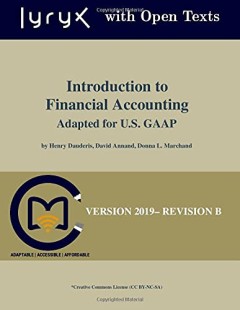
Introduction to Financial Accounting Adapted for U.S. GAAP
AccounƟng involves a process of collecƟng, recording, and reporƟng a business’s economic acƟviƟes to users. It is oŌen called the language of business because it uses a unique vocabulary to communicate informaƟon to decision makers. To understand accounƟng, we first look at the basic forms of business organizaƟons. The concepts and principles that provide the foundaƟon for financ…
- Edition
- -
- ISBN/ISSN
- -
- Collation
- -
- Series Title
- -
- Call Number
- 657 DAU i
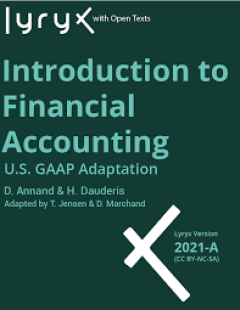
Introduction to Financial Accounting: U.S. GAAP Adaptation
This textbook is an adaptation by D. Marchand and Athabasca University of the original text written by D. Annand and H. Dauderis. It is intended for use in entry-level college and university courses in financial accounting. A corporate approach is utilized consistently throughout the book. The adapted textbook includes multiple ancillary student and instructor resources. Student aids include s…
- Edition
- -
- ISBN/ISSN
- -
- Collation
- -
- Series Title
- -
- Call Number
- 657 ANN i
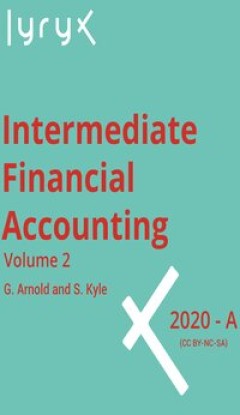
Intermediate Financial Accounting Volume 2
This new text by G. Arnold and S. Kyle, developed in collaboration by Athabasca University and Lyryx, is intended for the second of two in Intermediate Financial Accounting courses. It presumes that students have already completed the Introductory Financial Accounting, and the first Intermediate Financing Accounting course. The text reflects both current International Financial Reporting Standa…
- Edition
- -
- ISBN/ISSN
- -
- Collation
- -
- Series Title
- -
- Call Number
- 657 ARN i
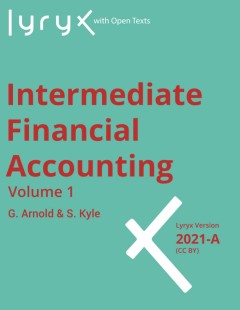
Intermediate Financial Accounting Volume 1
This text is intended for a first course in Intermediate Financial Accounting. It presumes that students have already completed one or two Introductory Financial Accounting courses. The book reflects current International Financial Reporting Standards (IFRS), such as IFRS 15 - Revenue from Contracts With Customers. It focuses on more difficult intermediate accounting topics that match prerequis…
- Edition
- -
- ISBN/ISSN
- -
- Collation
- -
- Series Title
- -
- Call Number
- 657 ARN i
 Computer Science, Information & General Works
Computer Science, Information & General Works  Philosophy & Psychology
Philosophy & Psychology  Religion
Religion  Social Sciences
Social Sciences  Language
Language  Pure Science
Pure Science  Applied Sciences
Applied Sciences  Art & Recreation
Art & Recreation  Literature
Literature  History & Geography
History & Geography